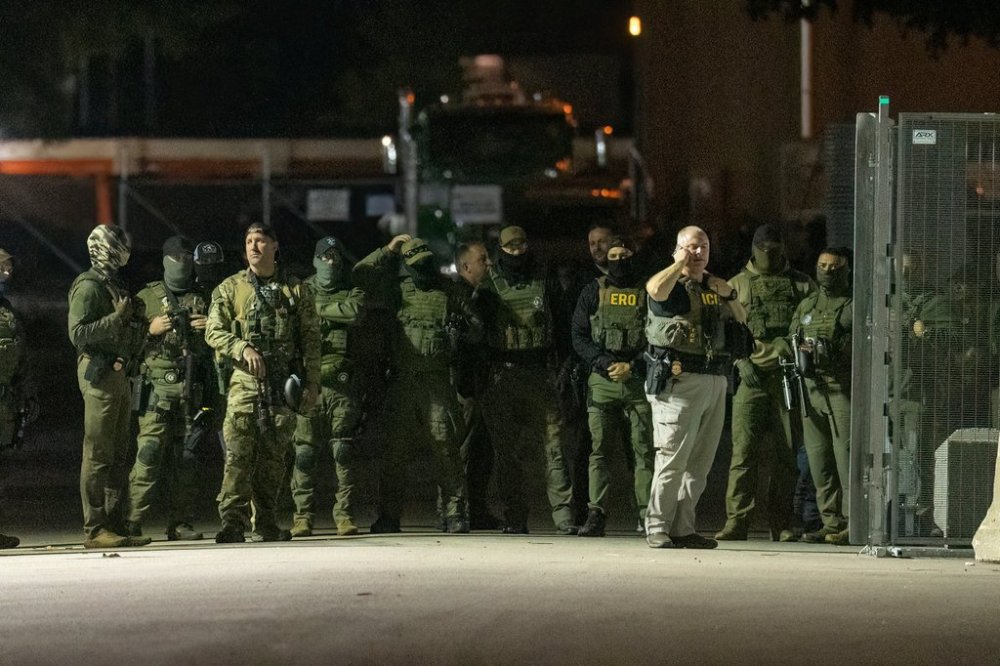Judge wants immigration agents in Chicago area to wear body cameras after clashes with public
Advertisement
Read this article for free:
or
Already have an account? Log in here »
We need your support!
Local journalism needs your support!
As we navigate through unprecedented times, our journalists are working harder than ever to bring you the latest local updates to keep you safe and informed.
Now, more than ever, we need your support.
Starting at $15.99 plus taxes every four weeks you can access your Brandon Sun online and full access to all content as it appears on our website.
Subscribe Nowor call circulation directly at (204) 727-0527.
Your pledge helps to ensure we provide the news that matters most to your community!
To continue reading, please subscribe:
Add Brandon Sun access to your Free Press subscription for only an additional
$1 for the first 4 weeks*
*Your next subscription payment will increase by $1.00 and you will be charged $20.00 plus GST for four weeks. After four weeks, your payment will increase to $24.00 plus GST every four weeks.
Read unlimited articles for free today:
or
Already have an account? Log in here »
CHICAGO (AP) — Troubled by clashes between agents and the public, a judge on Thursday said she will require federal immigration officers in the Chicago area to wear body cameras, and she also summoned a senior official to court next week to discuss an enforcement operation that has resulted in more than 1,000 arrests.
U.S. District Judge Sara Ellis said she was a “little startled” after seeing TV images of street confrontations that involved tear gas and other tactics during an immigration crackdown by President Donald Trump’s administration.
“I live in Chicago if folks haven’t noticed,” Ellis said. “And I’m not blind, right?”

Separately, hours later, a federal appeals court ruled against the Trump administration and said a lower court’s temporary ban on deploying the National Guard to assist immigration officers in Illinois would stay in place while the government pursues an appeal.
Community efforts to oppose U.S. Immigration and Customs Enforcement have ramped up in Chicago, where neighborhood groups have assembled to monitor ICE activity and film incidents involving agents. More than 1,000 immigrants have been arrested since September.
An immigration enforcement building in Broadview, outside Chicago, has been the site of regular protests. The Trump administration has tried to deploy Guard troops, in part to patrol at the Broadview location, but the strategy was halted on Oct. 9 for at least two weeks by a different federal judge.
Ellis last week said agents in the area must wear badges, and she banned them from using certain riot control techniques against peaceful protesters and journalists.
“I’m having concerns about my order being followed,” the judge said.
“I am adding that all agents who are operating in Operation Midway Blitz are to wear body-worn cameras, and they are to be on,” Ellis said, referring to the government’s name for the crackdown.
U.S. Justice Department attorney Sean Skedzielewski laid blame with “one-sided and selectively edited media reports.” He also said it wouldn’t be possible to immediately distribute cameras.
“I understand that. I would not be expecting agents to wear body-worn cameras they do not have,” Ellis said, adding that the details could be worked out later.
“DHS will continue to oppose all efforts to vilify law enforcement and prop up the cause of violent rioters,” said Tricia McLaughlin, spokesperson for the U.S. Department of Homeland Security. “Were a court to enter such an order in the future, that would be an extreme act of judicial activism.”
Ellis said cameras would provide evidence to back up how agents handle confrontations with protesters. Ellis said the field director of the enforcement effort must appear in court Monday.
Gov. JB Pritzker praised the judge’s ruling, saying the government’s statements about arrests and other incidents, including last month’s fatal shooting of a suburban Chicago man, have often been inaccurate.
“They clearly lie about what goes on,” he told reporters. “It’s hard for us to know right away what the truth is.”
In 2024, Immigration and Customs Enforcement began deploying about 1,600 body cameras to agents assigned to Enforcement and Removal Operations.
At the time, officials said they would be provided to agents in Baltimore, Philadelphia, Washington, Buffalo, New York and Detroit. Other Homeland Security Department agencies require some agents to wear cameras. U.S. Customs and Border Protection has released body-camera video when force has been used by its agents or officers.
Earlier this week, a Cook County judge barred ICE from arresting people at courthouses in Chicago and the suburbs.
